Many small restaurants closing, chains are surviving and delivery services skyrocket
VANCOUVER — In spite of required restaurant closures and social distancing being used to curb the rise of COVID-19, prepared food is finding its way onto the plates of eaters everywhere. How? The rise of the delivery app.
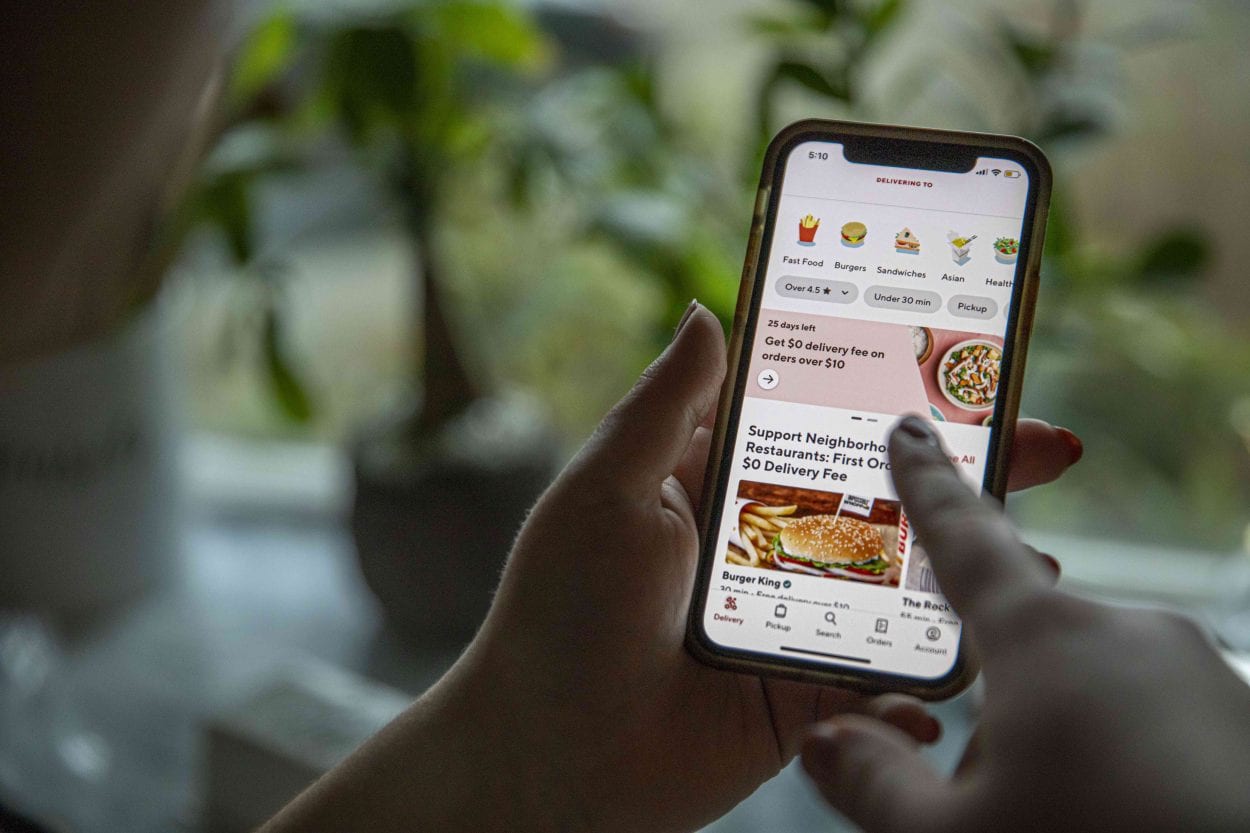
With the recent increase in the popularity of app services such as DoorDash, Postamates and Uber Eats, delivery of just about any restaurant still open for take-out is more than possible, it’s easier than ever.
“We have stayed significantly busy just from all the local support that we’re getting,” said Makana de Best, general manager at Heathen Brewing’s Feral Public House. “When we first got the news that we were gonna have to close we kind of looked at it as, ‘We’ll stay open so we can be relevant in the community and be here for the community, but we’re not going to have really high expectations.’ We’ve been way busier than we anticipated.”
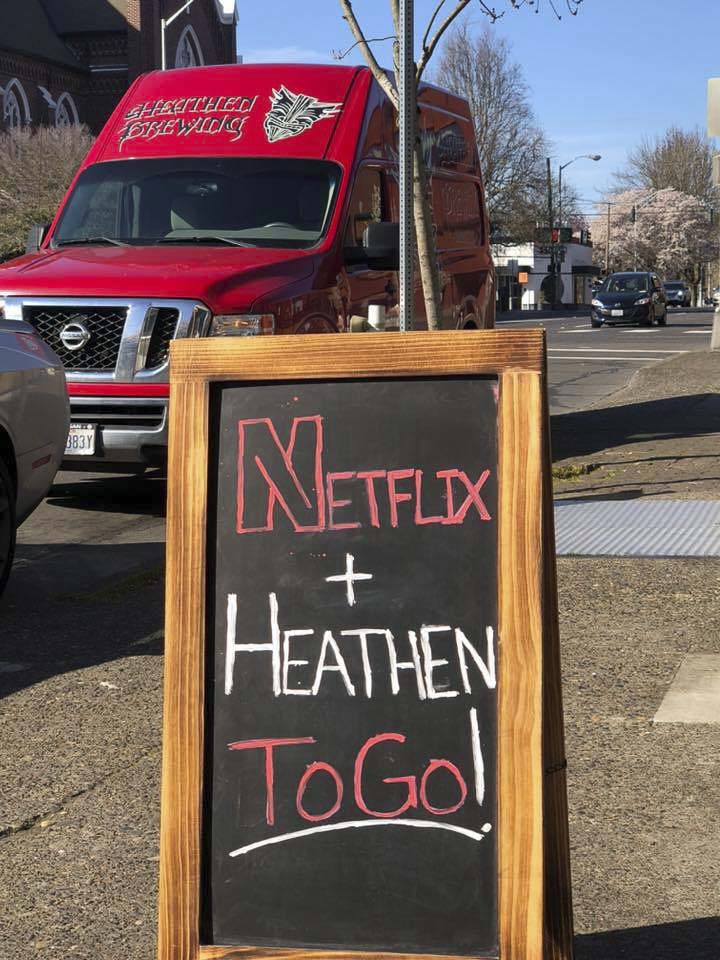
Essentially, apps like these work very similarly to Uber or Lyft. Users put in their location and pay for the meal as well as tip the driver in the app. Approved applicants are given the interface of a driver and when an order comes in within their current location they are dispatched to pick it up from the restaurant.
The only catch is that the system now in place may be too late to benefit small businesses as much as it will large chains. Many Clark County restaurants, such as The Mighty Bowl or Laughing Planet, have already had to close their locations until further notice. Others, like Feral Public House, have had to face the layoffs of much of their staff.
The hope of many in the industry is that delivery will help sustain them, and when the proverbial smoke clears, they can rehire and re-stabilize.
“When you’re in a small business, you really are kind of like a family,” de Best said. “It’s been stressful as a manager thinking like, ‘Oh my gosh, people can file for unemployment, but how long is it taking because everyone is filing for unemployment? Is everybody okay?’ Not being able to see everybody and talk to them, I’ve been trying to contact everybody as much as I can just to check in.”
Federal and state government, as well as Clark County Public Health (CCPH) are on board with the current model of take-out and delivery drivers. CCPH recently posted some best practices for ordering delivery on their Facebook page. Some tips include:
- Place orders online or by phone, if possible, rather than going into the restaurant
- Ask if the restaurant offers curbside pick-up, so you don’t have to enter the restaurant to get your food
- If placing an order in-person or picking up food to go, make sure you keep at least 6 feet between yourself and others in the food establishment. Leave as soon as you receive your order; don’t congregate
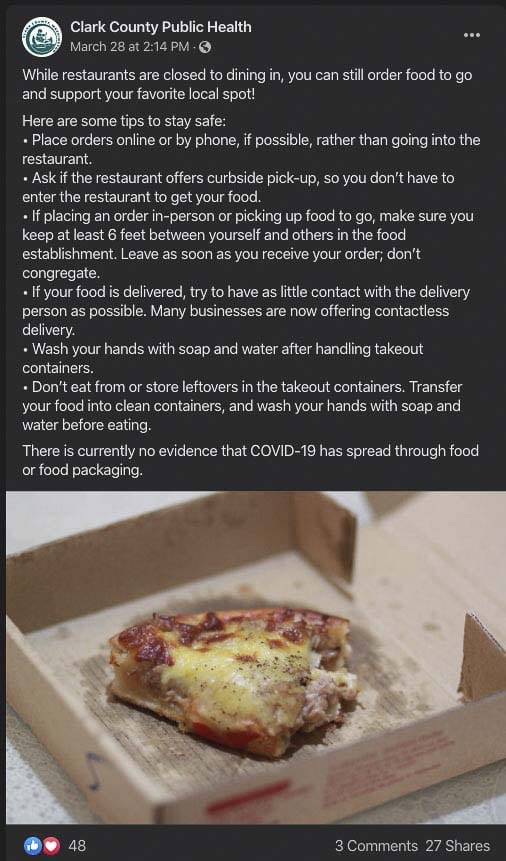
“There is currently no evidence that COVID-19 has spread through food or food packaging,” the post reads.
In light of the pandemic, delivery service providers, like DoorDash and Uber Eats, have waived delivery fees. Usually when using one of these services, one would have to pay for the meal, the delivery, taxes and fees, and the driver’s tip. For the foreseeable future certain platforms have simply made delivery free. Other services, like Square’s CashApp allow users to add an additional discount when ordering from DoorDash and paying with the CashApp card.
In some cases the sheer amount of app-placed orders rivals that of regular pre-COVID-19 business. At Hula Boy charbroil restaurant in east Vancouver, so many delivery drivers have shown up at once, management has had to make sure they were distanced and sanitize many surfaces afterward.
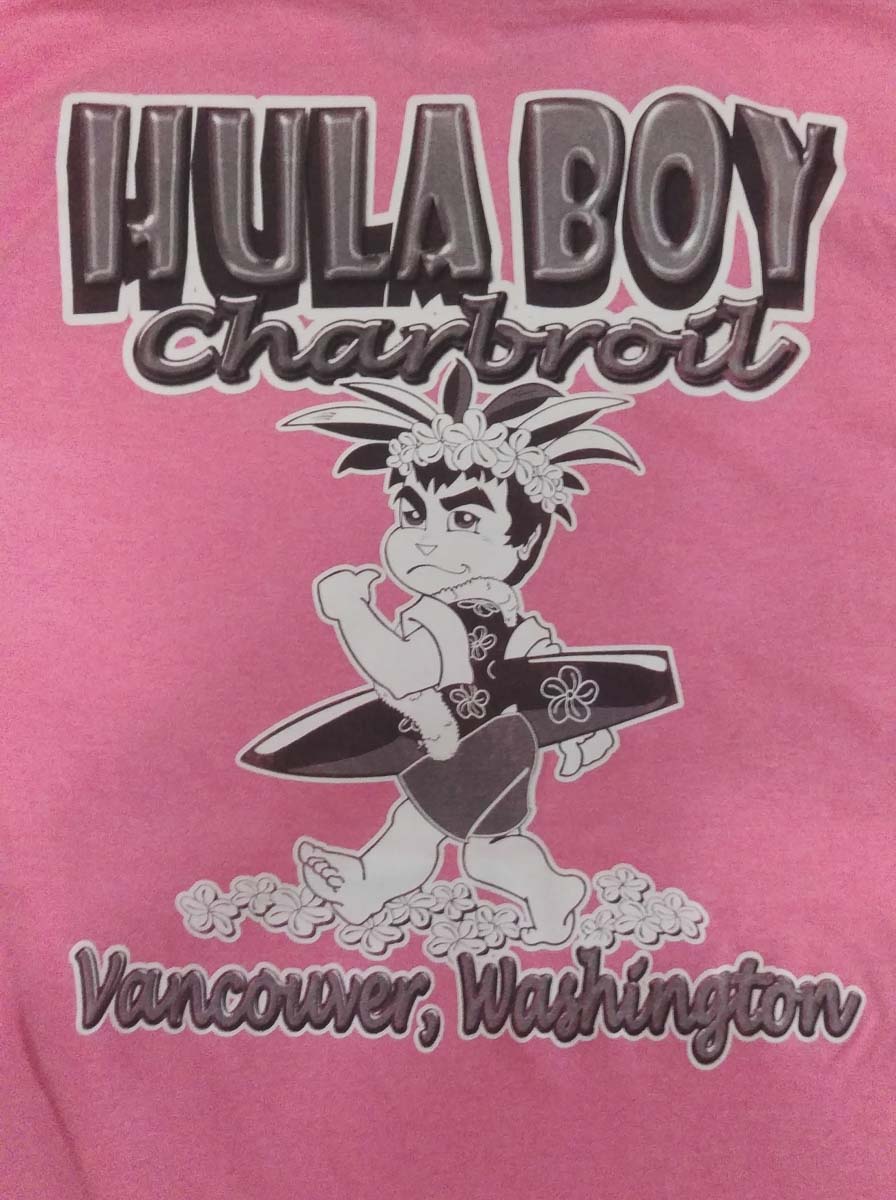
“Our DoorDash deliveries are increasing. We have stacks and stacks of boxes, we have so many delivery guys at the same time,” said Madison Wood, the office manager at Hula Boy. “We just can’t have people standing in our restaurant because we’re taking all the health precautions. It’s kind of crazy, but it’s awesome.”
When such rushes occur, typically at lunch and dinner, CCPH and the restaurants are recommending drivers and those picking up take-out, call on arrival and ask for curbside delivery or wait in their vehicles.
“Support small businesses. If their doors are open, help them out. You can buy gift cards if you want, take-out or DoorDash or whatever it is,” Wood said. “We have a lot of customers that we appreciate because they’ve been with us for 20 odd years, and we want to keep them and keep our doors open. We want to pay our employees. We’ve had our employees, some of them over 14 years. We’re not going to lose them to this.”
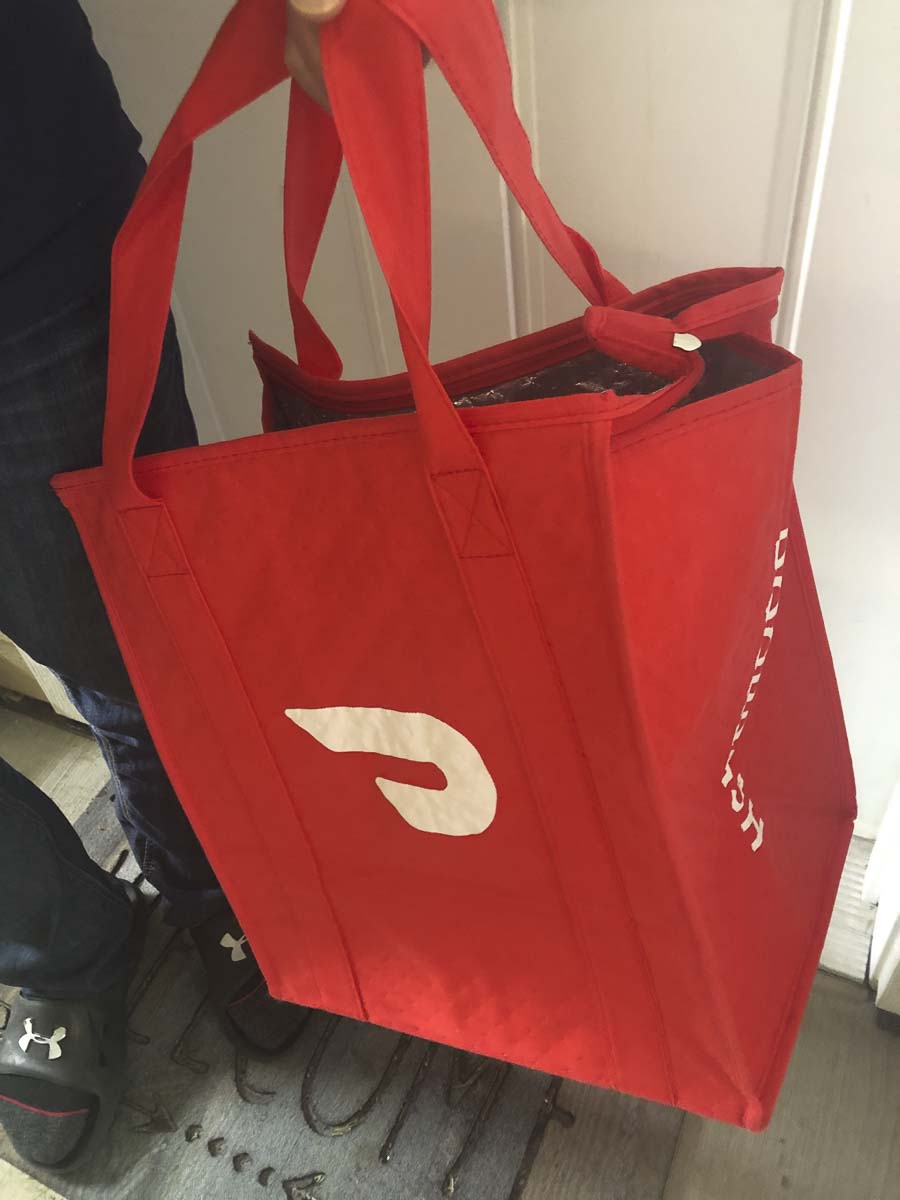
Many restaurants report that one of the best ways they have received big chunks of business is through catering orders or group lunch orders. Especially in downtown Vancouver where there are still several ‘essential’ businesses operating, these orders have been common, de Best said. At Feral Public House, the working crew has actually ordered lunch from another restaurant several times too, she said.
Those shuttling the food, the delivery drivers, are more and more made up of those whose jobs were not ‘essential,’ or who have been laid off elsewhere.
“It’s been very interesting. I have been taking extra precaution just because I’m dealing with the general public,” said Devin McFeron, a hairstylist at Finesse Beauty Bar in Battle Ground who is currently driving for Uber Eats. “Saturdays tend to be a little bit more busy for me at least, I’ve made most of my money on Saturdays.”
McFeron explained how she has been wearing gloves, using disinfectant wipes and making sure to have as little close interaction with people as possible to keep herself and those she’s delivering to, safe. While Uber Eats and others do not require this, it is recommended in the app.
She also mentioned that many of the orders she receives have been for larger chain restaurants.
“I have done some smaller businesses, and it’s crazy how quiet they are. You walk in and they hear the door open. I noticed the chains have more workers. I try and stay in the Hazel Dell area, or I’ll do 164th and 192nd area, and there’s only very specific small businesses in those areas,” Mcferon said. “I have noticed it just being a lot harder on small businesses, for sure, but at least this is a way they can still kind of make money.”
With President Donald Trump extending social distancing guidelines through the end of April, the light at the end of the tunnel for many small restaurants seems to be a moving target. At Feral Pub, de Best explained the struggle as the staff braced for the initial two weeks of closure with resolve, but as it grew to more than six weeks, they became weary of the effects.
“I’m just hoping that this doesn’t ruin small businesses in Vancouver,” de Best said. “I think Clark County is really cool because it has so many small local businesses, and you don’t really get that in a lot of places anymore. There are chains that will be totally fine after this, whether that’s like chain restaurants, chain stores, but downtown Vancouver and Vancouver as a whole has so much cool, small, locally owned businesses that I hope can thrive after this is all done.”




